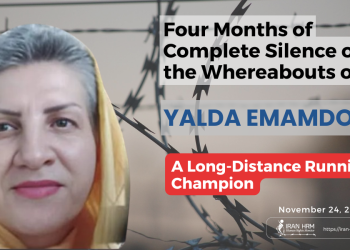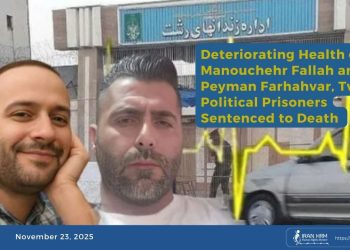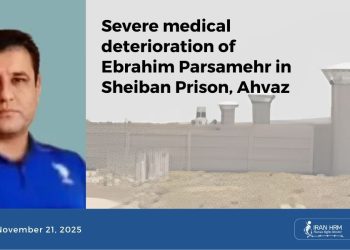in Vakilabad Prison, Mashhad: A Clear Example of White Torture
Reports from Vakilabad Prison in Mashhad indicate escalating pressure and harsh restrictions against Hashem Khastar, a prominent teachers’ union activist and political prisoner. Mr. Khastar, who is now in his seventies, is enduring conditions that clearly amount to human rights violations and psychological torture due to his years of activism defending educators’ rights and protesting oppression.
Confinement in Small Cells and Forced Isolation
Mr. Khastar is held in ward 1/6 of Vakilabad Prison, in a small cell under constant surveillance by CCTV cameras. This ward houses around 15 political prisoners who are allowed only one hour of outdoor time per day—a time that is also strictly controlled and offers only limited opportunity for contact with family. Mr. Khastar’s situation is even harsher: he is often kept in solitary confinement and is denied the right to meet or closely interact with others.
Deprivation of Free Communication and Freedom of Expression
While other political prisoners are permitted to use public phones in the prison yard to call their families, Mr. Khastar can only make calls through the prison warden’s office, under direct surveillance by authorities. Any minor criticism or objection during these calls results in an immediate cutoff of the connection. This has effectively disrupted his contact with the outside world, including his lawyers.
Deprivation of Books and Writing Tools
Among the distressing restrictions against political prisoners in ward 1/6 is the ban on bringing in books, notebooks, pens, or any writing materials. For someone like Hashem Khastar, who is a writer and analyst of social and political issues, this ban particularly amounts to suppression of freedom of expression and thought, and intensifies psychological pressure.
Living Restrictions and Health Threats
Restrictions on purchases from the prison store and extremely limited time for cooking have made living conditions even harsher for prisoners. These limitations pose a serious health threat, especially to elderly prisoners or those with chronic illnesses like Mr. Khastar.
A Series of Systematic Violations
The combination of isolation, strict control of communications, deprivation of reading and writing, poor living conditions, and denial of human contact together amount to “white torture,” aimed at breaking the spirit and destroying the mental and physical health of prisoners. Despite these pressures, Hashem Khastar continues to stand firm in resisting this injustice.
Lesser-Known Cellmates
In addition to Mr. Khastar, other political prisoners are held under similar conditions in Vakilabad Prison. Among them are Hassan Vadaeepour, who has been detained for over 15 years without any formal sentence, and Javad Alikordi, who also remains imprisoned in this ward.







